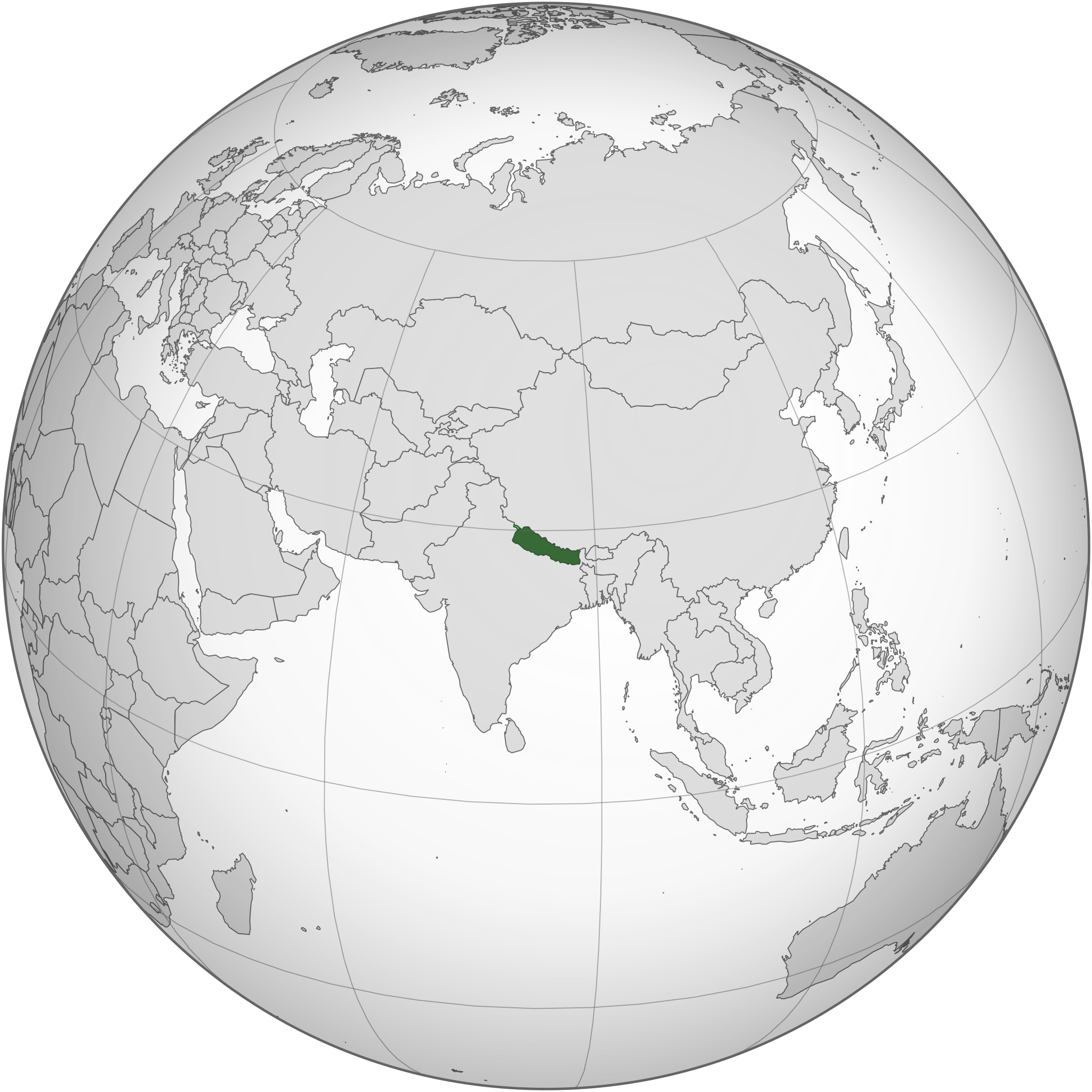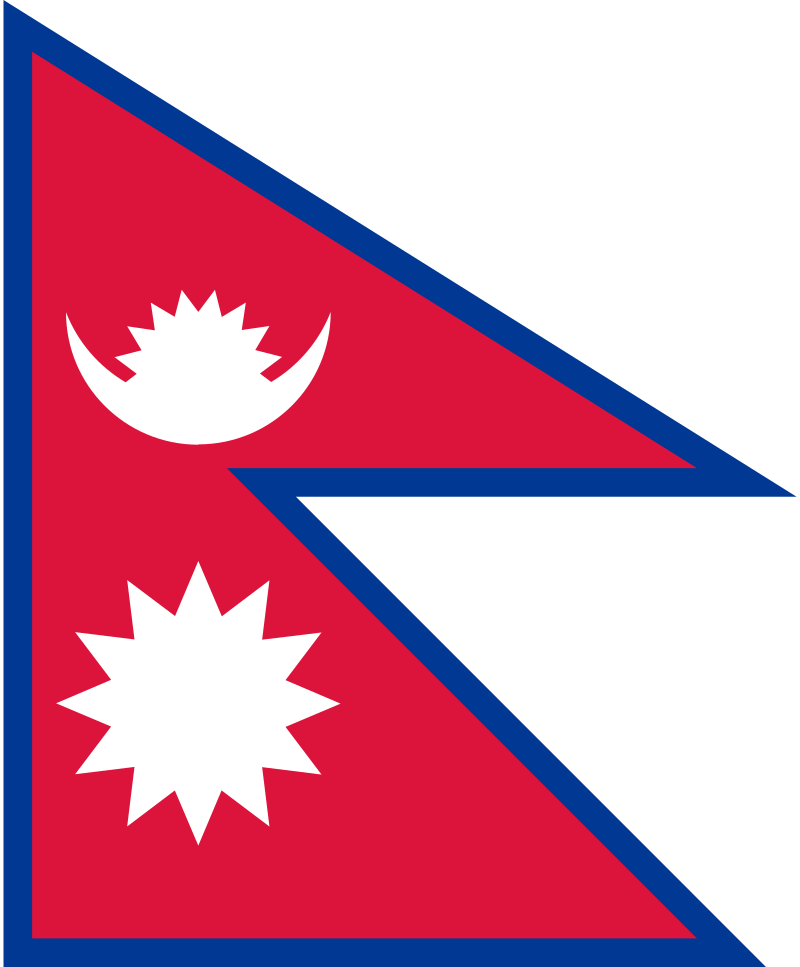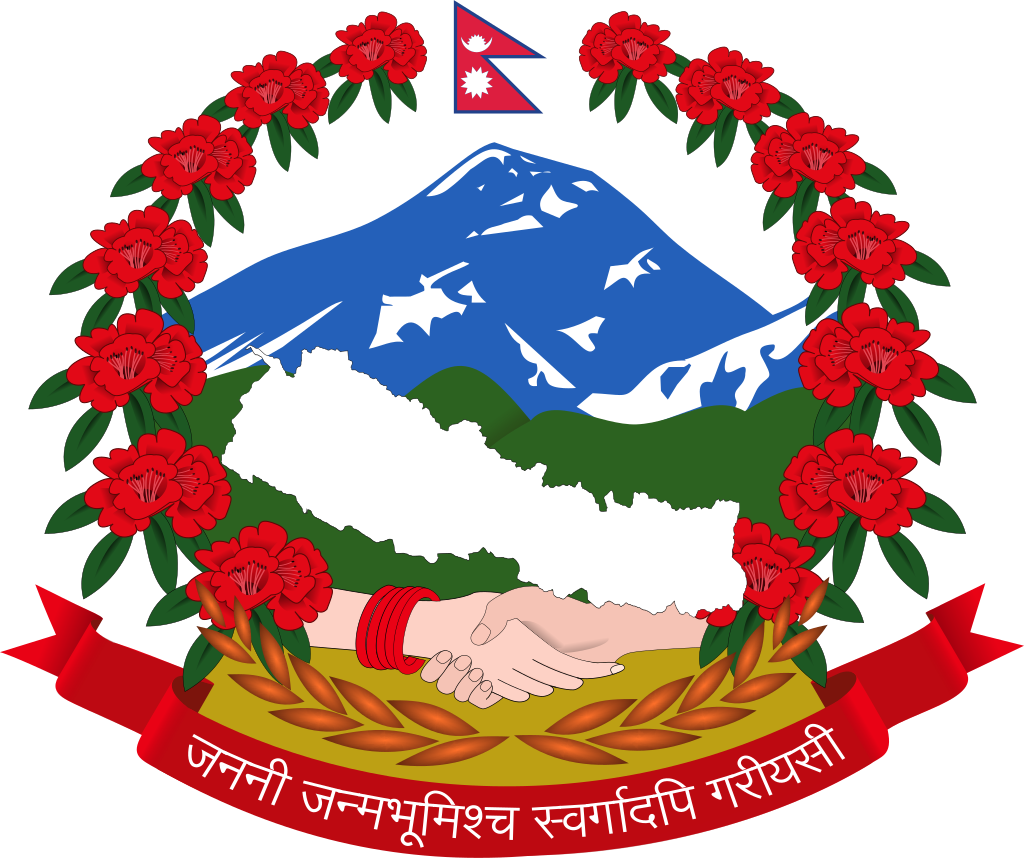More languages
More actions
| Federal Democratic Republic of Nepal सङ्घीय लोकतान्त्रिक गणतन्त्र नेपाल | |
|---|---|
 | |
| Capital and largest city | Kathmandu |
| Official languages | Nepali |
| Demonym(s) | Nepali Nepalese |
| Government | Federal parliamentary republic |
• President | Ram Chandra Poudel |
• Vice President | Ram Sahaya Yadav |
• Prime Minister | KP Sharma Oli |
• Chief Justice | Bishowambhar Prasad Shrestha |
| Area | |
• Total | 147,516 km² |
| Population | |
• 2024 estimate | 31,122,387 |
Nepal, officially the Federal Democratic Republic of Nepal, is a landlocked country in South Asia situated in the Himalayas. It borders China to the north and India to the south but is also narrowly separated from Bhutan and Bangladesh by a narrow corridor of Indian land.
History
Kingdom of Nepal
In 1769, Nepal was united under the Hindu Shah dynasty. After being defeated by the British East India Company, Nepal became a British protectorate. In 1846, most of the royal family was killed in the Kot massacre and military administrator Jang Bahadur Rana took power, establishing the Rana dynasty. The Rana dynasty was a constitutional monarchy and it assisted the British in their invasions of Tibet and Afghanistan and in the First World War. During this period, land was given to private owners and Nepal became a feudal country. In the 1920s, the British recognized Nepal as an independent state.[1]
The Rana dynasty ended in 1951 when King Tribhuvan fled to India. After an armed conflict began, India intervened and established a provisional government that included members of the royal family. In March 1951, Tribhuvan was given the ability to issue edicts, and full executive power was given to the king in September 1952. Tribhuvan died in 1955 and was succeeded by Mahendra, who ruled until 1971. In 1959, Mahendra allowed elections to held, which were won by the Nepali Congress. In 1960, King Mahendra dissolved the parliament and returned to being an absolute monarch.[1]
Contemporary history
In 1990, a new constitution was adopted that established an elected government and limited the powers of the monarch.[1] After years of struggle against the monarchy culminating in a revolution in 2006, led principally by the Communist Party of Nepal (Unified Marxist–Leninist) (CPN (UML)) and what is now the Communist Party of Nepal (Maoist Centre) (CPN (MC)), in 2008 Nepal became a federal republic following pressure by the Nepalese Maoists.[2][3]
Politics
Nepal's politics is dominated by a number of Maoist parties, most notably the CPN (UML) and CPN (MC), with CPN (UML) chairman K. P. Sharma Oli currently holding the position of Prime Minister. However, despite holding a large percentage of parliamentary power for over a decade the Maoists have so far failed to turn Nepal into a socialist state.[4]
References
- ↑ 1.0 1.1 1.2 Spyros Sakellaropoulos (2011). On the Causes of the Civil War in Nepal and the Role of the Communist Party of Nepal (Maoist) (pp. 1–9).
- ↑ "Nepal abolishes centuries-old Hindu monarchy" (2008-05-29). Reuters. Retrieved 2022-05-28.
- ↑ "Nepal to abolish monarchy" (2007-12-24). National Public Radio (NPR).
- ↑ Khagendra Prasai (2023-11-13). "Is Marxism Alive in Nepal?" Rosa Luxemburg Stiftung.


